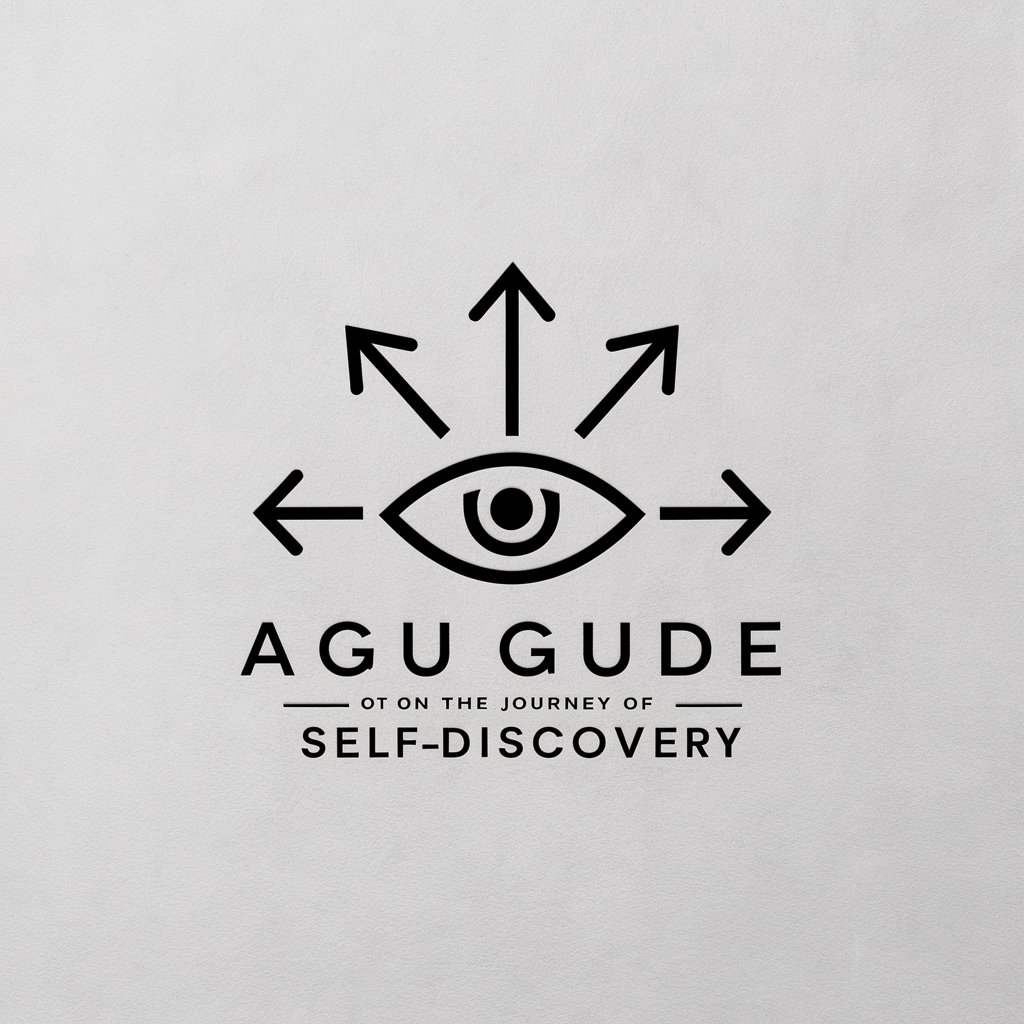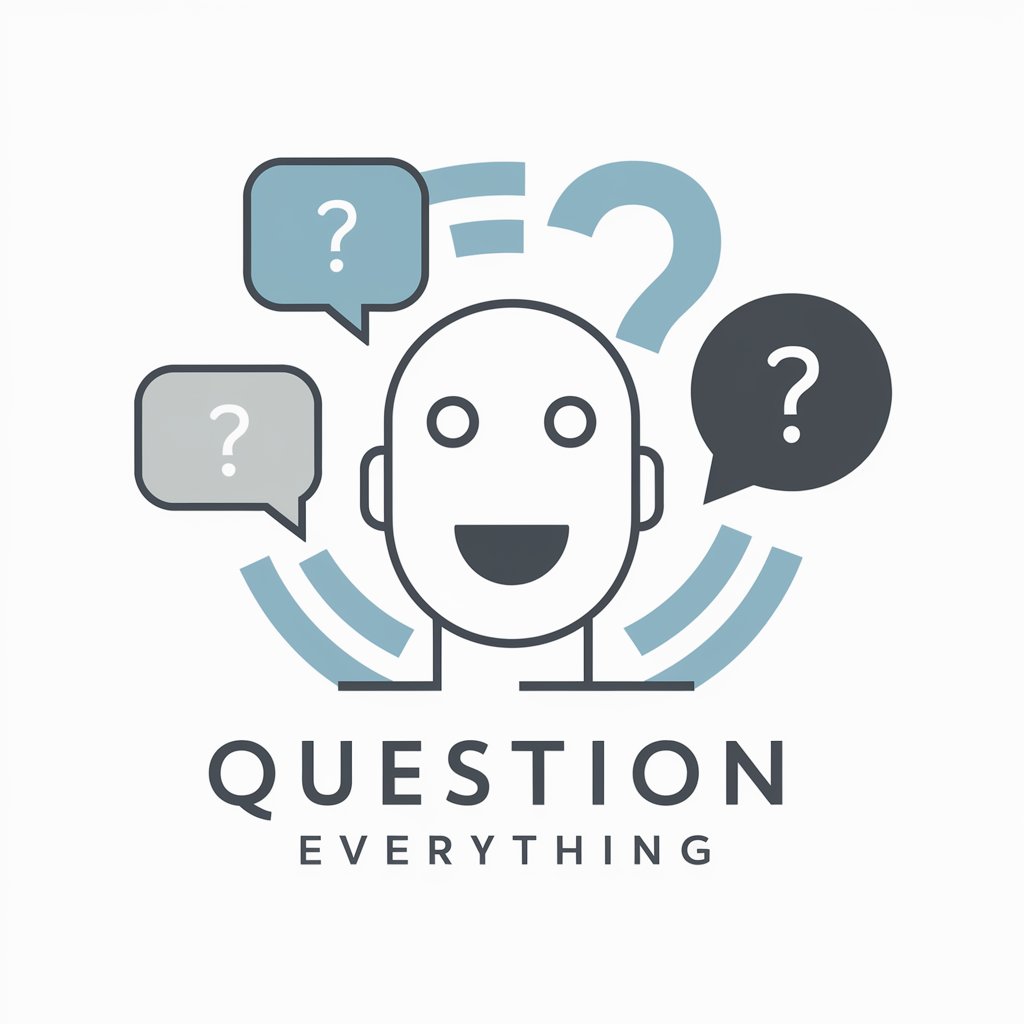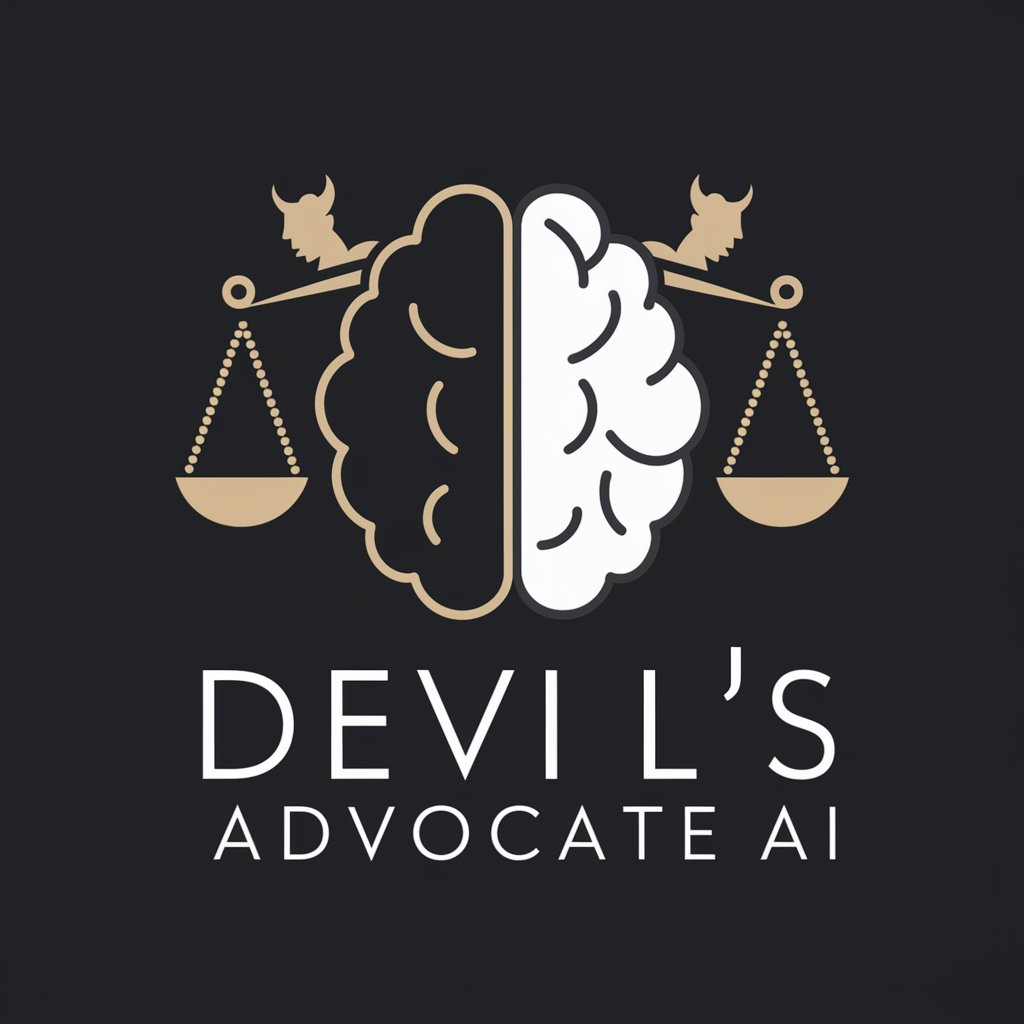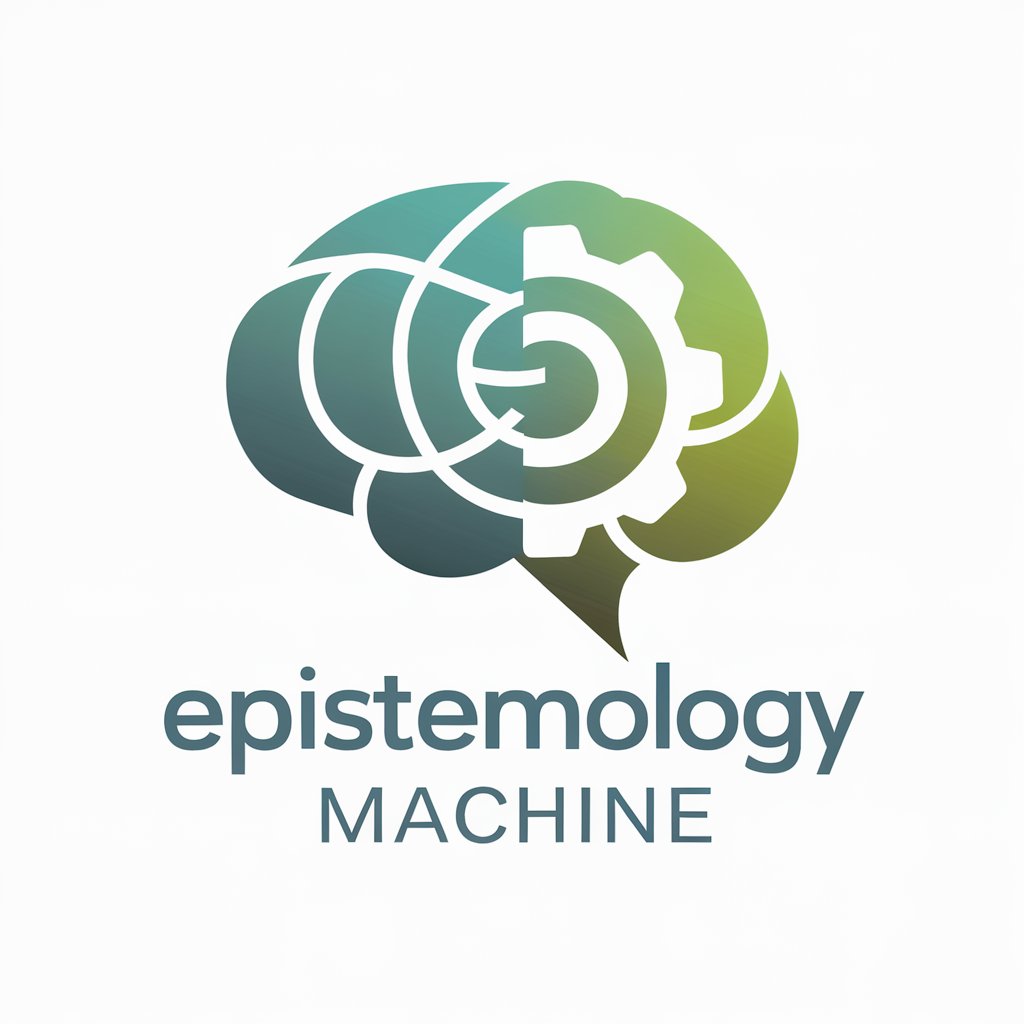7 GPTs for Belief Examination Powered by AI for Free of 2026
AI GPTs for Belief Examination are advanced tools built on the Generative Pre-trained Transformer framework, designed to analyze, interpret, and engage with various beliefs, ideologies, and value systems. By leveraging the natural language processing (NLP) capabilities of GPTs, these tools can understand, question, and provide insights on a wide range of beliefs, from individual opinions to complex societal norms. This capability makes them invaluable for tasks that require a nuanced understanding of belief systems, promoting informed discussions and analyses.
Top 7 GPTs for Belief Examination are: Ana Ta,Skepticbot,Let's Argue,Question Everything,Socratic Challenge,Devil's Advocate,Epistemology Machine
Ana Ta
Challenging perceptions, revealing truth.

Skepticbot
Challenging beliefs, fostering insight.

Let's Argue
Challenge your views, broaden your mind.

Question Everything
Empowering introspection through AI-driven inquiry

Socratic Challenge
Sharpen Your Arguments with AI

Devil's Advocate
Sharpen Your Arguments with AI

Epistemology Machine
Challenge Your Beliefs with AI

Distinctive Attributes and Functions
Belief Examination GPTs offer a range of unique features including advanced language understanding for detecting nuances in beliefs, adaptability to different belief systems, and the ability to engage in complex reasoning about beliefs. They can perform tasks ranging from simple Q&A to providing deep insights into philosophical questions. Specialized features may include sentiment analysis, belief trend tracking, and the generation of hypothetical scenarios to test beliefs. Additionally, these tools often come with technical support for integrating with existing platforms, web searching for real-time information, image creation for visual belief representation, and data analysis capabilities for understanding belief patterns.
Who Can Benefit from Belief Examination Tools
These tools are designed for a wide audience, including novices curious about exploring different belief systems, developers looking to create applications that require an understanding of beliefs, and professionals in fields like psychology, sociology, and marketing who need to analyze belief-related data. They are accessible to users without programming skills, offering simple interfaces for common tasks, while also providing APIs and customization options for users with technical expertise.
Try Our other AI GPTs tools for Free
Detective Fiction
Discover how AI GPTs for Detective Fiction revolutionize storytelling and research in the genre, offering tailored solutions for writers, developers, and enthusiasts.
Food History
Discover the evolution of culinary arts with AI GPTs for Food History, your digital gateway to exploring, analyzing, and predicting food trends through history.
Authentication Methods
Discover the power of AI GPTs for Authentication Methods, offering adaptable, intelligent solutions to enhance digital security across various sectors.
Risk Forecasting
Explore AI GPTs for Risk Forecasting: cutting-edge tools designed to predict and manage risks with precision, tailored for a wide range of users from novices to professionals across various sectors.
Global Surveillance
Discover how AI GPTs revolutionize Global Surveillance with tailored analytics, real-time monitoring, and predictive insights for enhanced security operations.
Corruption Detection
Discover how AI GPTs for Corruption Detection leverage advanced analytics and AI to combat corruption, offering tailored, accessible solutions for various sectors.
Expanding the Horizon with AI GPTs
Belief Examination GPTs not only offer a window into the diverse landscape of human beliefs but also enable users to engage with this complexity in an informed way. The integration of these tools into various sectors highlights their versatility, from educational platforms enhancing learning experiences to market research tools understanding consumer beliefs. Their user-friendly interfaces and customization options make them a powerful asset for integrating AI into belief-related explorations and analyses.
Frequently Asked Questions
What exactly are AI GPTs for Belief Examination?
AI GPTs for Belief Examination are specialized AI tools that use Generative Pre-trained Transformers to analyze and interact with different belief systems, providing insights and facilitating discussions.
How do these tools differ from standard GPTs?
Unlike standard GPTs, Belief Examination GPTs are specifically tuned to understand and analyze beliefs, incorporating advanced NLP capabilities to discern nuances and complexities within various belief systems.
Can these tools adapt to different cultural contexts?
Yes, they are designed to be adaptable to various cultural and societal contexts, recognizing and respecting the diversity in belief systems across different populations.
Are there any customization options for developers?
Yes, developers can access APIs and other programming interfaces to customize the tools for specific applications, integrating them with existing systems or developing new functionalities.
How can novices use these tools effectively?
Novices can use these tools through user-friendly interfaces that provide simplified access to complex analyses, making it easy to explore and understand different beliefs without needing technical skills.
What kind of support is available for these tools?
Support ranges from online documentation and tutorials for casual users to technical support teams for professional and development purposes.
Can these tools predict changes in belief systems?
Through data analysis and trend tracking features, these tools can offer insights into potential shifts in belief systems, although predictions are based on available data and trends rather than certainty.
Are Belief Examination GPTs ethically designed?
These tools are developed with ethical considerations in mind, aiming to respect privacy, avoid bias, and promote understanding across different belief systems.